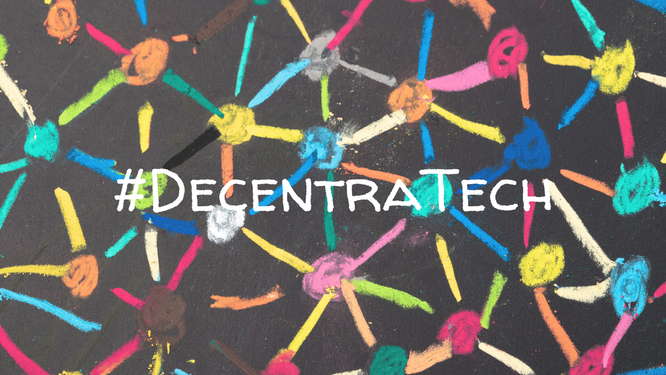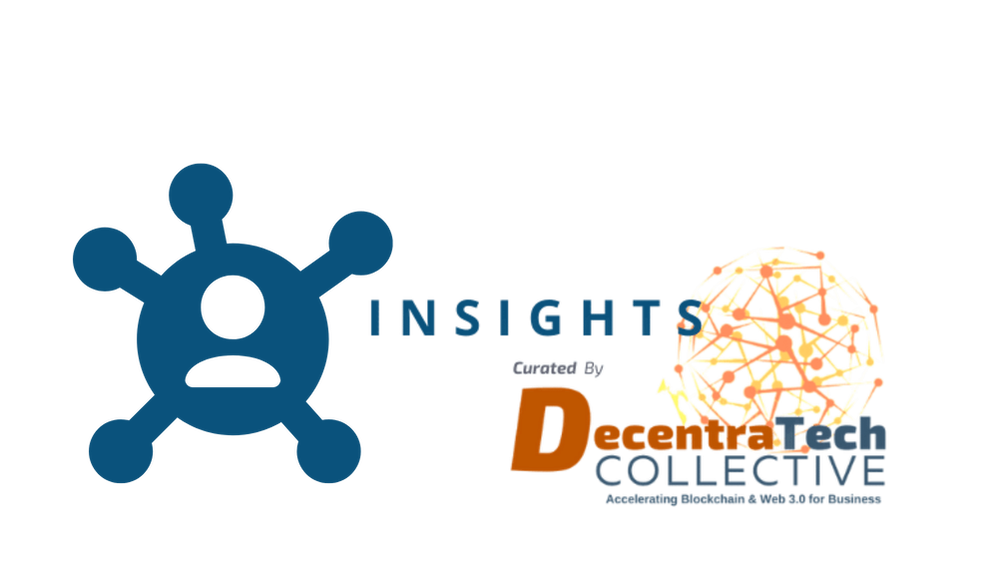|
By Pete Harris, Co-Founder and Executive Director, DecentraTech Collective

Many in the blockchain and MedTech world have fond memories of this day a year ago, when the Blockchain and Digital Transformation in Health 2020 symposium was held in Austin, TX. One of the conversations among the 100+ participants that gathered that day was the breaking news that the first cases of coronavirus had been detected in the U.S. A question that many had was what the impact here would be. Tragically, we now have at least a partial answer to that one.
The symposium – a unique collaboration between the Austin Blockchain Collective and Dell Medical School – featured keynotes from UCSD Health and IBM and combined presentations and panels from commercial innovators and academia. As such, it acted as a catalyst for a number of important conversations and partnerships that have continued since.
In particular, the symposium addressed several key themes that have risen in visibility and importance over the past year. Notable topics included:
While hosting a follow up in-person symposium in 2021 is unlikely to happen due to the ongoing pandemic, we at the DecentraTech Collective continue to maintain a focus on the decentralization of healthcare and look forward to running online webinars and video conversations and will continue to engage with the medical and healthcare community. See you in person in 2022!
0 Comments
By Pete Harris, Co-Founder and Executive Director, DecentraTech Collective  DecentraTech is the short notation for decentralization technology. The business world already commonly uses terms like FinTech to mean financial technology, or MedTech for medical technology, or MarTech for marketing technology. Thus, adopting DecentraTech to refer to a collection of technologies that allows decentralization to be adopted by businesses is both consistent and long overdue. To step back for a moment to consult the Miriam-Webster dictionary, decentralization is “the process by which the activities of an organization, particularly those regarding planning and decision making, are distributed or delegated away from a central, authoritative location or group.” The concept of decentralization as an organizational approach is not at all new, having originated in France 200 years ago. Technological decentralization – which in current times is a requirement of most manifestations of decentralization – became a possibility with the creation of the internet, conceived as an open network that anyone can access, based on common standards and with no central governance. Ironically, it is now increasingly accepted that the most popular commercial services delivered via the internet, especially the world wide web, are products of centralized corporations. And many consider that some of those players – including “Big Tech” companies such as Google, Facebook and Twitter – now wield too much control over service provision and personal data ownership for the public good. One of the many with concerns about the power that Big Tech has amassed is Tim Berners-Lee, who created the web in 1990. He is now working on Solid, an open-source effort to reinvent the web so as to allow individuals to control their personal data. More broadly, Web 3.0, a term coined by Ethereum co-founder Gavin Wood, who went on to form the Web3 Foundation, is focused on creating “a decentralized and fair internet where users control their own data, identity and destiny.” As a result of the recent actions of a few high profile companies – including Twitter cancelling the account of the then-sitting POTUS, and online financial app Robinhood suspending retail investor trading in certain wildly popular stocks – calls for the establishment of decentralized services that are censorship-resistant have grown loud. As it happens, Twitter – or at least its CEO Jack Dorsey – has been pondering the responsibilities that come with operating a forum for open discourse in an era where some use it to spread misinformation and hate speech that can have public safety consequences. Following Twitter’s recent decision to suspend and remove a number of accounts, Dorsey wrote (on Twitter) that “I feel a ban is a failure of ours ultimately to promote healthy conversation.” In the future, Twitter might be able to sidestep similar actions by becoming a decentralized service where (presumably) moderation processes would be under the jurisdiction of the crowd. At the end of 2019, it kicked off the bluesky project, which Dorsey characterizes as “an initiative around an open decentralized standard for social media. Our goal is to be a client of that standard for the public conversation layer of the internet.” A few weeks ago, the project released a research paper covering a number of existing decentralized social media ecosystems and noted that it is eager to hear about other projects. “Our DMs are open!” |
About the CURATORPete Harris is the Co-Founder and Executive Director of the DecentraTech Collective. He is also Principal of Lighthouse Partners, which provides business strategy services to developers of transformational technologies. He has 40+ years of business and technology experience, focusing in recent years on business applications of blockchain and Web 3.0 technologies. Curated AND FOCUSED CONTENTThe Collective recognizes that there is a wealth of information available from publications, newsletters, blogs, and more. So we are curating 'must read' content in specific areas to help our community to cut through the noise and focus only on what’s important. Archives
February 2021
|

 RSS Feed
RSS Feed


